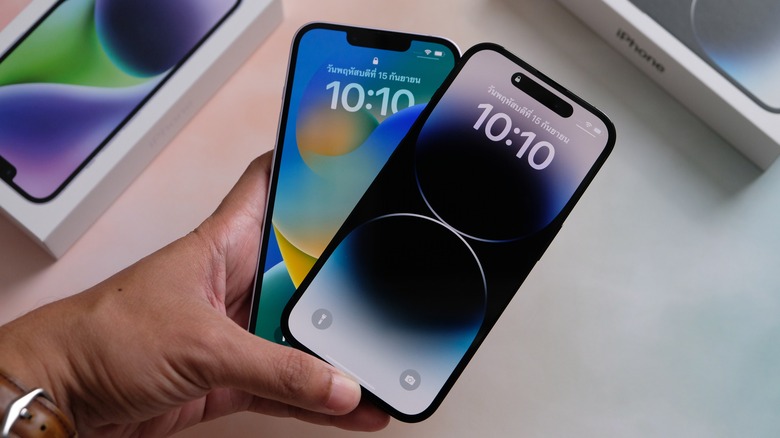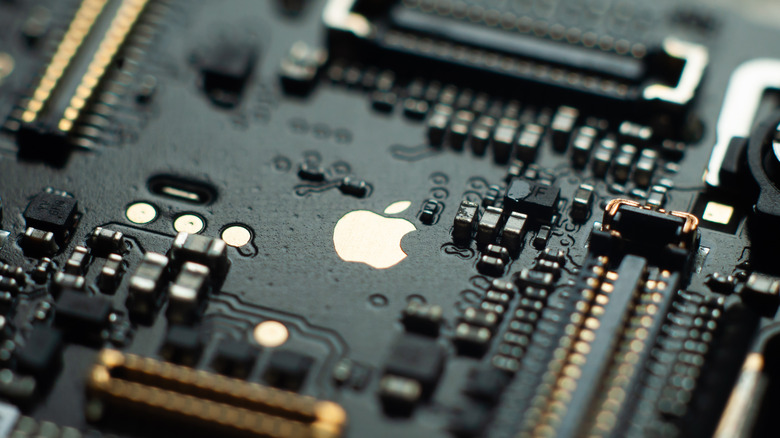Apple's New Plan For Chip Dominance Isn't What Anybody Expected
Apple has long relied on tech company Qualcomm to supply 5G modems for its devices. However, Apple has apparently never been satisfied with this arrangement and has spent years trying to develop its own 5G modem in-house. After Apple paired up with Taiwan Semiconductor Manufacturing Company (TSMC) in 2021, Apple was projected to have its own 5G modem ready by 2023.
Deep into 2023, things have remained quiet on Apple's end about its developing chipset. Qualcomm assumed things were going well for Apple, stating, "We're making no plans for 2024, my planning assumption is we're not providing [Apple] a modem in '24."
In an unprecedented move, Qualcomm has struck a deal with Apple to supply its Snapdragon 5G Modem-RF Systems for its smartphones through 2026. Qualcomm noted that the six-year patent license agreement between the two companies that started in 2019 will stay untouched, but it may need to use the two-year extension option.
5G isn't easy
Building a 5G modem is no easy task. This is something Intel found out the hard way after it failed to make a splash in the market and subsequently bowed out of the 5G business entirely in 2019. However, all was not lost, as Apple swooped in and acquired most of Intel's smartphone modem tech.
Many believed this put Apple in pole position for the years to come. However, we now know that even with the extra help, Apple could not get its new modems up and running in time for its 2024 hardware lineup.
Developing radio-frequency chips is among the most difficult engineering challenges, and 5G is the most complex generation of the technology. Experts predicted that there were even more problems ahead for Apple, as Intel's tech wasn't up to snuff when it came to 4G and 3G. Because modems have to be backward compatible, Apple needed to completely overhaul the tech. That, combined with having to compete with Qualcomm's patented Snapdragon features, makes the 5G modem business tricky.
Still, this is all good news for Qualcomm. UBS estimated that 21% of its 2022 revenue, coming in at $44.2 billion, was from its chip supply to Apple. It also made almost $2 billion 2022 via its cellular licensing fees to Apple. However, UBS did note that Qualcomm will only supply 20% of the chipset supply through 2026, so it may still expect Apple to step up.

